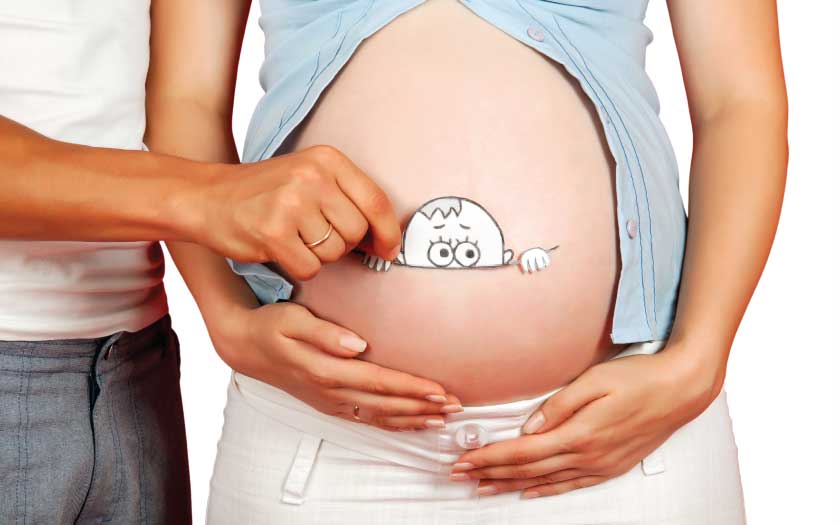Having a cesarean section, or commonly known as a c-section, is nothing new today – some women even opt for it beforehand as the chosen mode of childbirth. Recovering from a c-section isn’t the same as recovering from a vaginal birth though, for, after all, a c-section is categorised as major surgery.
Hence, some extra level of care is called for. If you are scheduled for a c-section, or just had one, this article is for you.
Rest as much as you can
As a C-section is major surgery, your body needs time to heal afterward. You can expect to stay in the hospital for three to four days after your delivery (longer if there are complications). While you’re there, you will be taken care of by the hospital staff till you’re ready to be discharged. When you’re home, you’ll have to allow your body up to six weeks to fully heal and recover.
Although the general advice sounds simple enough, that is, to get as much rest as you can, you’ll find that it’s not as simple as that. You’ll soon find that it may get a little daunting, especially when you have a newborn who needs your attention, especially when he or she is hungry or needs a diaper change. In this regard, we’ll have to remind you of an adage that you’ve probably heard before, and that is, to sleep whenever your baby sleeps! Whoever told you that is right, for that way, you’ll at least get some much-needed rest, and regularly too!
Our next advise is to ask friends and relatives for help with the baby and household matters wherever possible – such as with diaper changes, bottle feeding, laundry, etc, so you can lie down when possible. Even a few minutes of rest here and there throughout the day will go far in helping you get the rest you need for quicker recovery and healing.
Show your body some TLC
You may feel strong and well, and that’s all good – but keep in mind that countless women who felt that way and neglected their c-section ended up with a wound that could not be healing well or worse, an infected wound due to insufficient or inappropriate care.
Keep in mind that a c-section wound may appear small, but it still underwent the same procedures as any other major surgeries, and hence should be treated as one. Here are a few tips:
- Avoid going up and downstairs as much as you can. Keep everything you need, like diaper changing supplies and food, close to you so that you don’t have to get up too often.
- Remember too, that you should avoid lifting anything heavier than your baby. Ask for help from your spouse or a friend or family member.
- Whenever you have to sneeze or cough, hold your abdomen to protect the incision site.
Should you exercise?
It could take up to eight weeks for you to get back into your normal routine. Ask your doctor when it’s fine to exercise, go back to work, and drive. Avoid strenuous exercise, but do take gentle walks as often as you can. The movement will help your body heal and prevent constipation and blood clots. Plus, walks are a great way to introduce your baby to the world.
You’ll also have to ask your doctor when will be the right time to resume having sex. If you used tampons before your c-section, do inquire from your doctor about the best time to resume using them again.
Mind your emotional wellbeing
Just as you take care of your physical health, don’t forget about your emotional health. Having a baby can bring up feelings you never expected. If you feel exhausted, sad, or disappointed, don’t ignore it. Talk about your emotions with a friend, your partner, your doctor, or a counselor.
Pain relief
Ask your doctor what pain medicines you can take, especially if you’re breastfeeding. Depending on the level of your discomfort, the doctor might prescribe a pain reliever or advise you to take over-the-counter pain medication. In addition to pain medicine, you can use a heating pad to relieve discomfort at the surgical site.
Eat well for better recovery
Good nutrition is just as important in the months after you deliver as it was while you were pregnant. If you’re breastfeeding, you’re still your baby’s primary source of nutrition. Eating a variety of foods will keep your baby healthy and help you get stronger.
Research shows that eating vegetables while breastfeeding imparts flavors in breast milk that increase your child’s enjoyment and consumption of those vegetables as they grow. Also, drink plenty of fluids, especially water. You need extra fluids to boost your breast milk supply and to avoid constipation.
When to see your doctor
The soreness felt at the incision site, together with your postnatal bleeding or discharge will last for up to six weeks after the C-section. During this time, you must pay attention to how your body is healing, particularly, your wound. Look out for the symptoms, and call your doctor if or when they appear, for they may be indicating an infection:
- Redness, swelling, or pus oozing from the incision site
- Pain around the site
- Fever of more than 100.4°F (38°C)
- Bad-smelling discharge from the vagina
- Heavy vaginal bleeding
- Redness or swelling in your leg
- Difficulty with breathing
- Chest pain
- Pain in your breasts
- Emotional stress: If you feel sad and your mood never seems to lift, especially if you have thoughts of hurting your baby.
You may have heard of friends or family members who went through a C-section, and if you have, resist comparing your own experiences with them, or expecting things to turn out in certain ways due to what you have heard. Every woman’s experience with these c-sections is different.
The most important thing for you to focus on now as a new mom is on your own body’s recovery, for the best interest of your baby, and for the rest of this parenting journey that awaits you!



